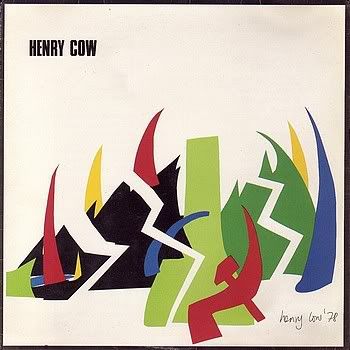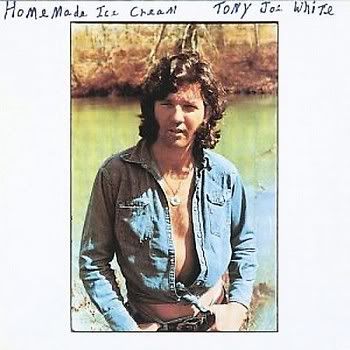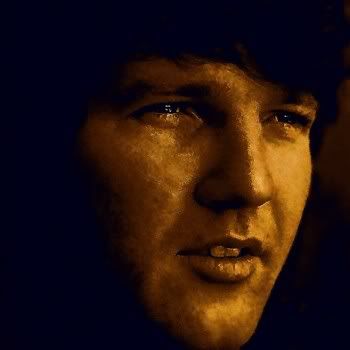
Sean Costello - Cuttin' In - 2000 - Landslide
In one of his final interviews Sean said: “All I’ve ever wanted to do was play the guitar well. I’ve been fortunate to be able to make a living doing it, and I plan to keep it up for the rest of my life". Tragically, Sean passed away in 2008, and never fulfilled his wishes. Sean was a great star in the making. Even during his short lifespan, he had gained recognition and respect as a great guitarist. When he released “Cuttin’ In” in 2000, Sean wasn’t even 20 years old, yet he already had a gold record to his credit. “Cuttin’ In” earned him great critical reviews, as well as a prestigious W. C. Handy Award nomination for ‘Best New Artist Debut.’ "Cuttin' In" also received a four and a half star review from the All Music Guide, and Blues Revue Magazine stated that, “Sean Costello blows in like a gust of fresh spring air!” The LA Weekly praised Sean's guitar player and said that “Costello is the real deal!” "Cuttin' In" is a great album by a then young 20 year old Philadelphian born bluesman. The album is mature. The songs are sung in a vocal style way beyond Sean's young age, and his understanding of the blues, as well as soul, and R&B was also highly developed for such a young guy. His guitar technique was wonderful. The album contains a wonderful range of material. It has Texas (Johnny “Guitar” Watson )influences, exotic Caribbean sounds (“Goombay Rock”, a track discovered by accident), and second-generation postwar Chicago artists (the worldly, tour-de-force cover of “Double Trouble” marked Sean's first attempt at recording a song by Otis Rush, who was a major influence on Sean. This album is HR by A.O.O.F.C. Buy Sean's "Moanin' for Molasses", and "We Can Get Together" albums, and keep his memory alive. Sean plays some great guitar on Susan Tedeschi's "Just Won’t Burn" album. If you suffer from anxiety or depression, as Sean did, why not check out The Sean Costello Memorial Fund for Bipolar Research
TRACKS / COMPOSERS
1 Talk to Your Daughter Atkins, Lenoir 5:14
2 Cuttin' In Watson 2:53
3 Cold Cold Ground Costello, Linden 3:09
4 Mellow Chick Swing Williamson 2:08
5 I Want to Be Loved Dixon 2:19
6 Who's Been Cheatin' Who Clevland, Costello 2:50
7 Double Trouble Rush 7:37
8 Jumpin' Salty Costello 2:21
9 Goombay Rock Higgs 3:32
10 I Got Loaded Camille 2:51
11 Those Lonely, Lonely Nights Hing, Vincent 2:40
12 Close to You Dixon 4:10
13 Rub a Dub Williamson 4:02
14 Ah'w Baby Little Walter 3:59
MUSICIANS
Sean Costello Guitar, Vocals
Melvin Zachary Bass (Electric)
Dave Roth Bass (Upright)
Matt Wauchope Organ, Piano
Paul Linden, Piano, Harmonica,Vocals
Tim Gunther, Bill Edwards Drums (Snare)
Chris Uhler Percussion
REVIEW
This is Costello's second solo album, his first since his appearance on Susan Tedeschi's hit CD Just Won't Burn. Costello is only 20 years old, but his guitar work is in a completely different league from that of the other kid blues guitarists currently causing a fuss in bluesland. Costello comes from a remarkably well-informed place as a player. This is reflected not only in his guitar style, but also in the choice of material on Cuttin' In. He has a nice feel for jump blues, as we hear on his cover of Sonny Boy Williamson's "Mellow Chick Swing," and he can do the hard-edged Chicago blues with the requisite skill and fury — check out his Butterfield-esque original "Who's Been Cheatin' Who." The R&B influence has not eluded Costello either — his cover of Otis Rush's "Double Trouble" is handled with a soulful feel that belies his age. And Costello's not afraid to take a flyer, either, which brings us to the calypso funkiness of "Goombay Rock," a song worthy of the Squirrel Nut Zippers' attention. Costello the guitarist has snatched the key to the blues kingdom. His playing is shockingly deep for a 20-year-old. And his vocal work is nearly a match for his guitar chops; given time, that too will become very real. Of all the young blues lions out there brandishing their electric guitars, Costello is the one who's got his head and heart into the deep blues. © Philip Van Vleck, allmusic.com
ABOUT SEAN COSTELLO
Teen blues phenomenon Sean Costello was born and raised in Atlanta, receiving his first guitar for his ninth birthday. A primarily self-taught player, he initially gravitated toward hard rock but soon discovered Stevie Ray Vaughan, moving on from there to Howlin' Wolf; under the wing of local bluesman Felix Reyes, a 14-year-old Costello won the Beale Street Blues Society's talent award in 1994. Another contestant was Susan Tedeschi, and soon Costello began touring as her lead guitarist and stayed with her band for a couple years. He also provided guitar on Tedeschi's 1998 album, Just Won't Burn. Soon after leaving Tedeschi's band, Costello assembled backing outfit the Jivebombers — bassist Carl Shankle, keyboardist and harpist Paul Linden, and drummer Terrence Prather — and issued his debut album, Call the Cops, in 1996. After touring extensively and revamping his band by replacing Shankle with Melvin Zachary on bass and adding keyboardist Matt Wauchope, Costello released Cuttin' In in early 2000. The album was a success in the blues community, gaining him a W.C. Handy Award nomination for Best New Artist Debut. In 2001 Costello released his third album, Moanin' for Molasses, and further cemented his reputation as one of the best young blues guitarists on the scene. The self-titled Sean Costello was released on Artemis Records in 2004. Unfortunately, Artemis folded a few months later and the album — intended as Costello's breakthrough — never received the publicity it deserved. It would be four years before Costello would release another album with 2008's We Can Get Together. Sadly, on April 15, 2008, just two months after the release of that album and a day before his 29th birthday, Costello was found dead in a local Atlanta hotel room. A subsequent toxicology report found the cause of death to be a mixture of drugs including heroin. © Jason Ankeny, allmusic.com

BIO (Wikipedia)
Sean Costello (April 16, 1979 – April 15, 2008) was an American blues musician, renowned for his fiery guitar playing and soulful singing. He released five critically-acclaimed albums before his career was cut short by his sudden death at the age of 28. Tinsley Ellis called him ‘the most gifted young Blues guitarist on the scene... he was a triple threat on guitar, vocals and as a songwriter’. Costello mastered traditional blues guitar at an early age and began his career while still in high school. His records became increasingly eclectic as his career progressed. Born in Philadelphia, Costello moved to Atlanta at the age of 9. Obsessive about the guitar from a young age, he got hooked on the blues after buying Howlin’ Wolf's 'Rockin' Chair Album'. At 14 the young prodigy created a stir in a Memphis guitar shop, where an employee tipped his father off about a talent contest sponsored by the Beale Street Blues Society, which Costello duly entered and won. He formed his first band shortly after. At sixteen, Costello recorded his first album, Call The Cops (1996), already ‘displaying a flawless command of 1950s blues guitar’, in the words of music historian Tony Russell. His lead guitar work on Susan Tedeschi's gold-selling album, Just Won't Burn, (1998), subsequently brought him national exposure. Costello's band later toured as Tedeschi's backing group. "His playing is shockingly deep for a 20-year old", wrote the Allmusic guide of Costello's second album, Cuttin’ In (2000), which was nominated for a W. C. Handy Award for Best New Artist Debut. The follow-up, Moanin’ For Molasses, was equally well received; the Allmusic guide drew attention to Costello's "soulful voice" and his "ability to mesh blues, R&B and soul". "Passionate... distinctive and often compelling... Costello's vocals are most astonishing," reported Blues Revue Magazine. Costello honed his skills through almost constant performing, playing over 300 gigs a year and touring widely in the USA and Europe. His reputation as a brilliant live performer enabled him to play alongside blues luminaries such as B. B. King and Buddy Guy (Ma Rainey House benefit concert, Columbus, Georgia, June 1997), James Cotton (Cotton's 64th birthday concert in Memphis) and Hubert Sumlin (South by Southwest, Austin, Texas, March 2005). When not touring, Costello made a living playing small venues in his home town of Atlanta, Georgia, such as the Northside Tavern. Richard Rosenblatt, former President of Tone-Cool Records, recalls Costello's performances: As a guitarist he was astounding, but for Sean it was never about showing off monstrous chops or stroking his own ego. His playing always fit the song; he would work the tone and phrasing, sometimes with an economy of notes that let the empty spaces hang achingly for what seemed like hours. When he did take off on the occasional blazing run, he was the ultimate tightrope walker, flirting fearlessly with danger before bringing it all back home with the unlikeliest of phrases that was still, somehow, perfect. Through Amy Helm of Ollabelle, Costello met her father, Americana musician Levon Helm, formerly of The Band, whose eclecticism encouraged Costello to further develop his interests outside the blues: "he really blew it wide open for me. He’d play a Chuck Berry tune, then a blues, then a country tune or a rock number or whatever, and he didn’t even think twice about it.". Levon Helm and the members of Ollabelle were among the contributors to Costello’s fourth, self-titled album, recorded in New York with input from local musicians. With an eclectic set list, and arrangements reminiscent more of Memphis soul than Chicago blues, Sean Costello (2005) marked a departure from his earlier work. Costello’s guitar took a backseat to his voice, which by now "had acquired a ragged edge of considerable power" (Tony Russell). In 2007 Costello's playing on Nappy Brown's comeback album, Long Time Coming, was singled out for praise by the critics. The following year Costello released what was to be his last album, We Can Get Together, acclaimed by many as his best work. His guitar playing on this record was described variously as "incendiary", "searing", and "blistering red hot". Hal Horowitz of the Allmusic guide wrote the following: - "The material is so strong and the ensemble playing of his band so effortless that he doesn't need to distract attention from the songs with the extended soloing he is capable of... he establishes a greasy groove that weaves through each cut, connecting them even when the styles differ. While Costello is clearly inspired by the blues greats, many of whom he has covered on previous collections, he slants more to '70s Southern soul, rock, and R&B here, dousing these genres with a bucket load of swamp water and spearheaded by his whiskey-laced vocals. There's a thick, gooey atmospheric vibe that hangs over the album, gels its contents, and shows Costello to be a terrific singer and songwriter and guitar talent just hitting his peak". Sean Costello was found dead in his Atlanta hotel room on April 15, 2008. A medical report later determined that he died of an accidental drug overdose. Posthumously, Costello's family revealed that he had suffered from Bipolar disorder, and set up the Sean Costello Memorial Fund for Bipolar Research in his honor. Sean Costello has been nominated for two Blues Music Awards in the categories of Best Contemporary Blues Male Artist and Best Contemporary Blues Album for We Can Get Together. Winners will be announced on May 7, 2009.



















